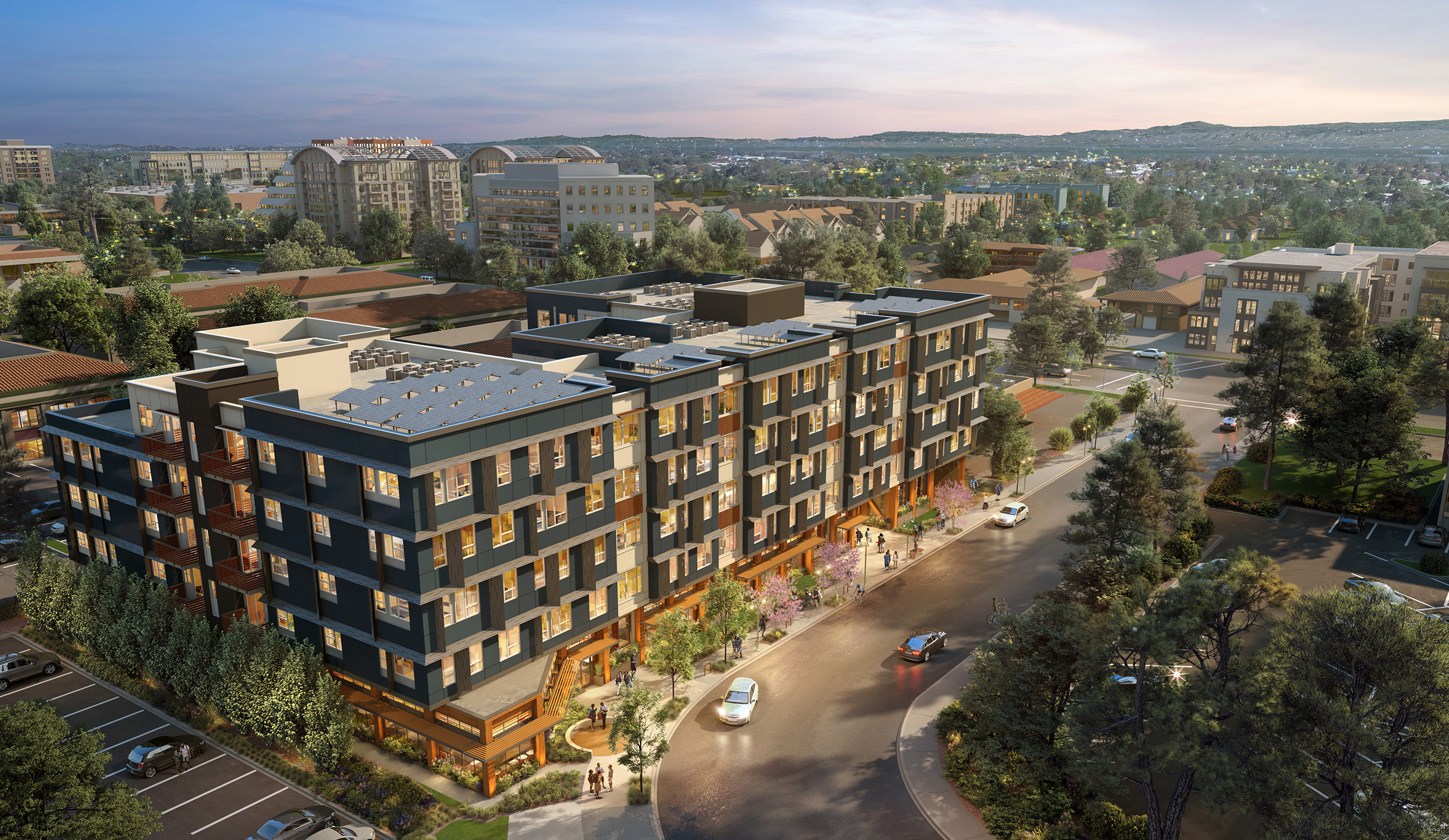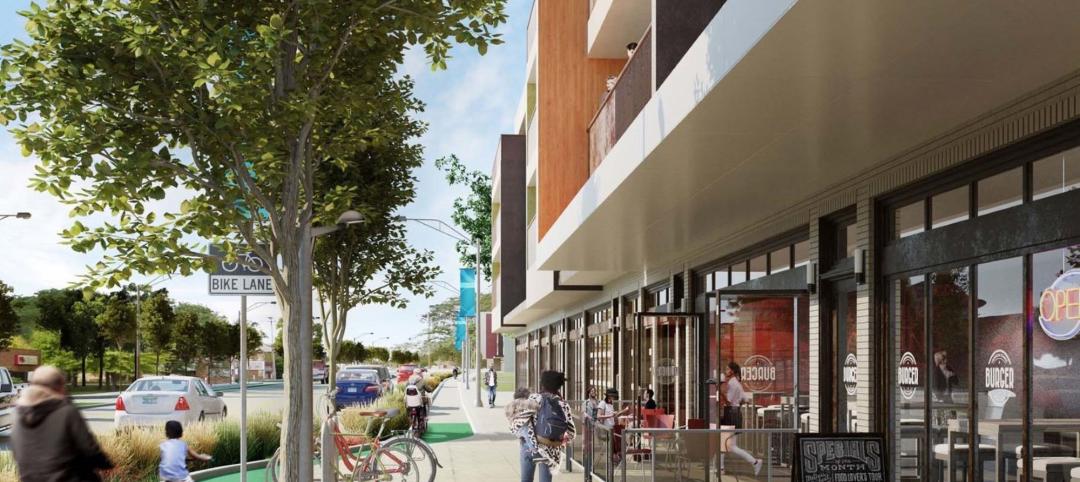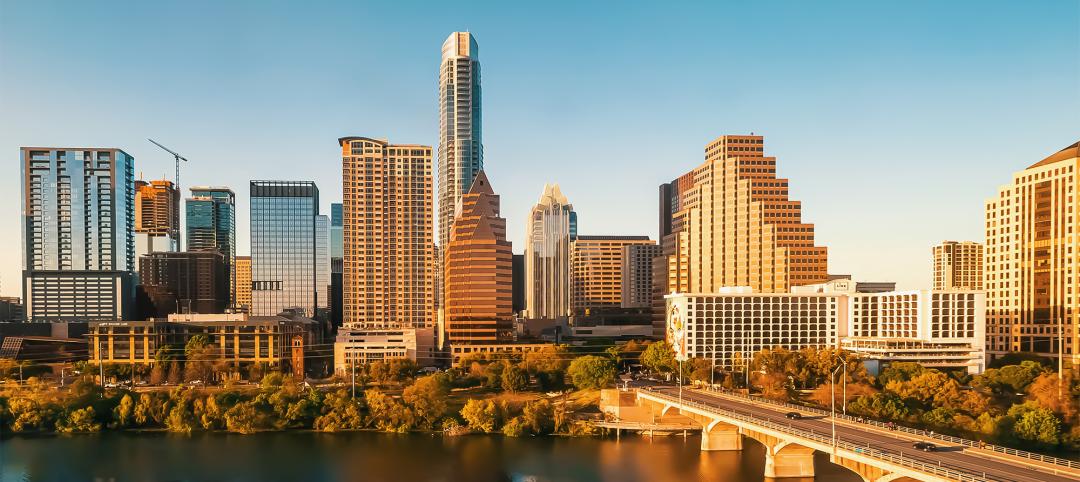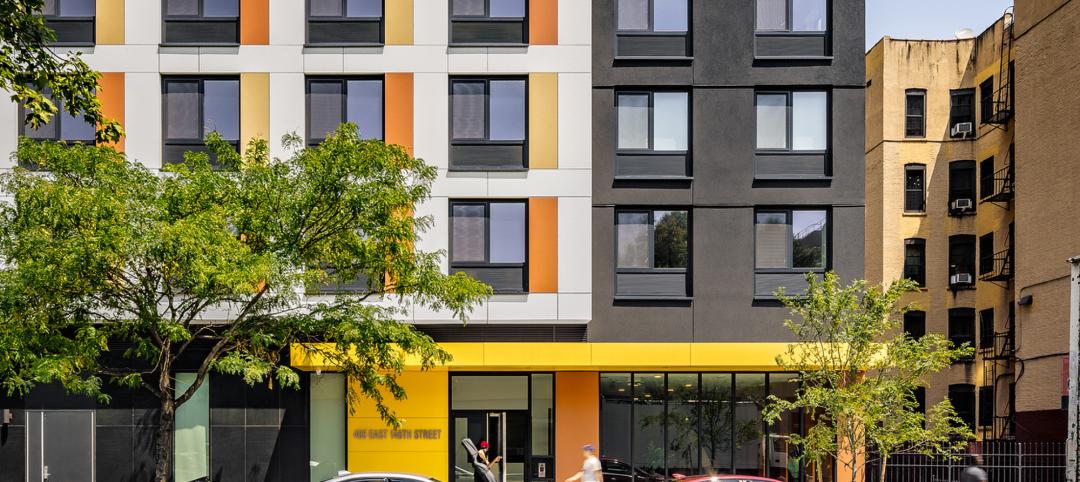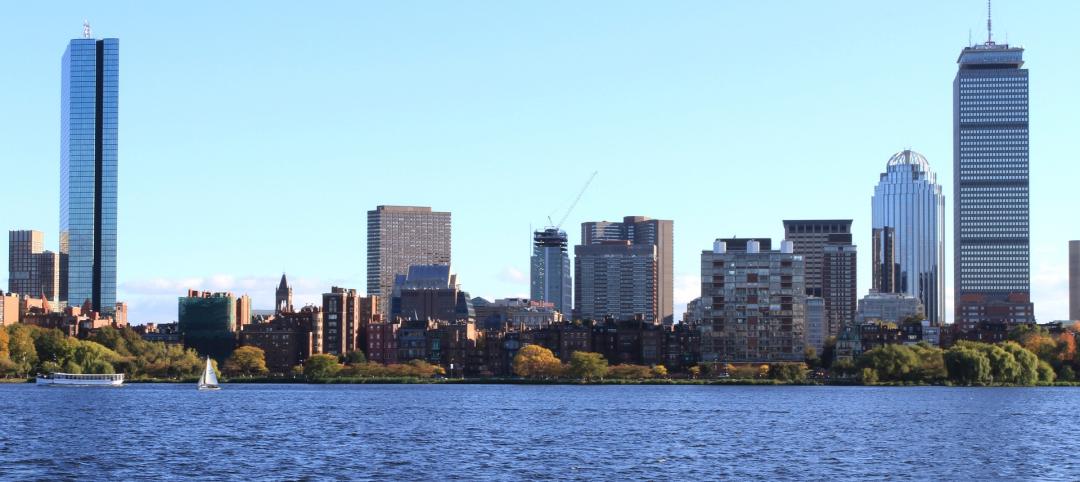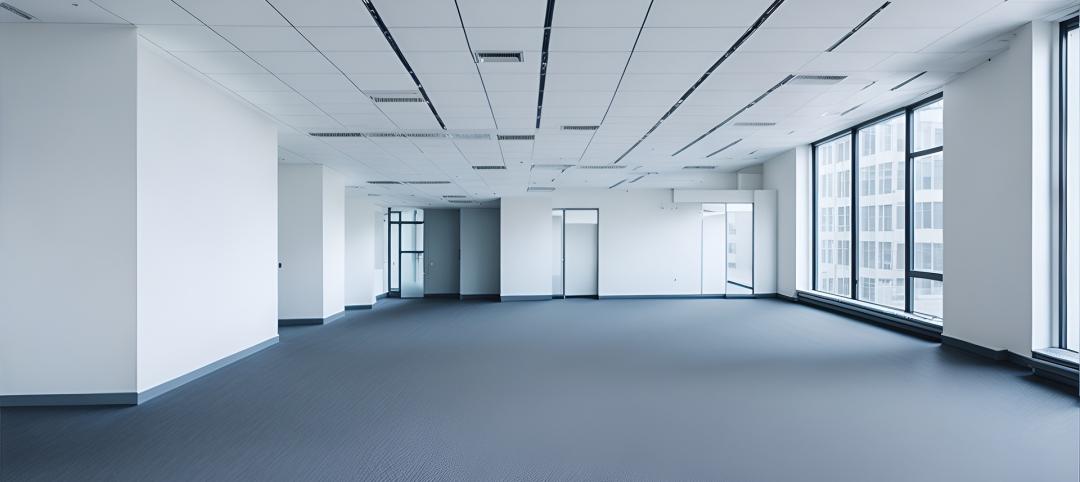In our latest call for entries, Building Design+Construction collected over 20 multifamily projects with a focus on affordable housing. Here are three recent (and future) developments that aced the criteria—reserving 100% of its units for affordable housing standards.
This article is part of BD+C’s 2023 affordable multifamily project roundup. While this article focuses on 100% affordable developments, other categories include Passive House-designed developments, mixed-use communities, and more. The entire list of projects can be found here.
Canal Commons
Bend, Ore.
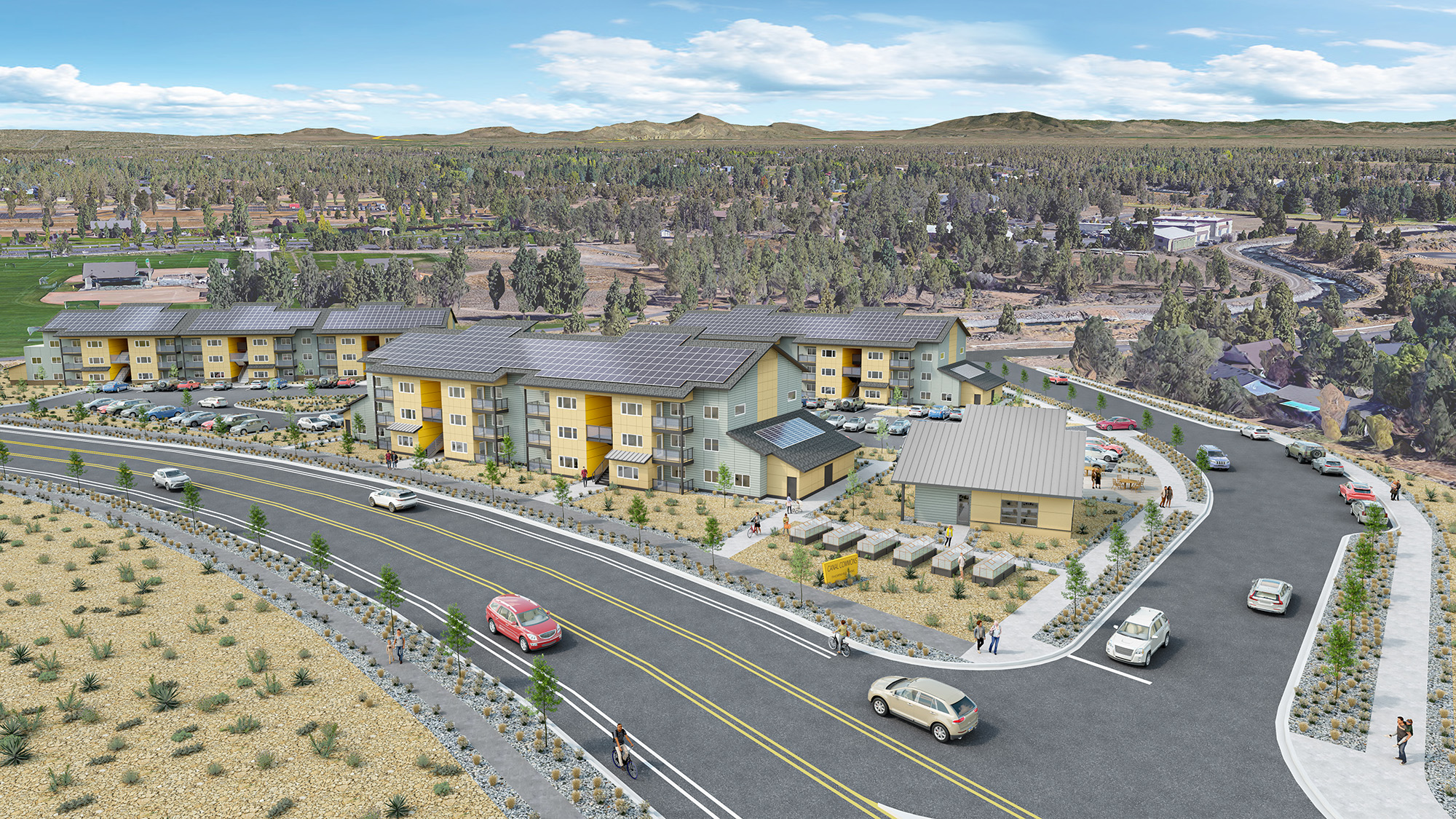
Canal Commons is a 44,525-sf multifamily development located in Bend, Ore., that proves affordability doesn’t have to compromise sustainability. Solar infrastructure provides 300 kw of power across the multiple buildings, reducing overall energy consumption by more than 75 percent. Intelligent lighting systems let 90% of the development’s LED lighting be sensor-controlled, and all appliances installed are Energy Star-certified.
The development’s 48 contemporary units feature one-, two-, and three-bedroom options. Each apartment comes with sustainable systems like thermal break double stud exterior walls, high heel trusses, and cool attic ventilation. On-site amenities include raised gardens, a community room, a fitness space, a meeting area, a leasing office, and a playground.
LRS, lead architect, and its building team partners were able to reduce construction costs through interlinking design philosophies, an economically low rate for its land purchase, and a meticulous development phasing plan. Canal Commons’ Phase I began in 2018 and completed during the Covid-19 pandemic; Phase II is set to wrap up in early 2023.
On the Building Team:
General Contractor: SunWest Builders
Owner/Developer: Pacific Crest Affordable Housing
Architect: LRS Architects
Landscape Architect: Land Effects
Civil/Structural Engineer: Ashley & Vance Engineering
Lucille and Bruce Terwilliger Place
Arlington, Va.
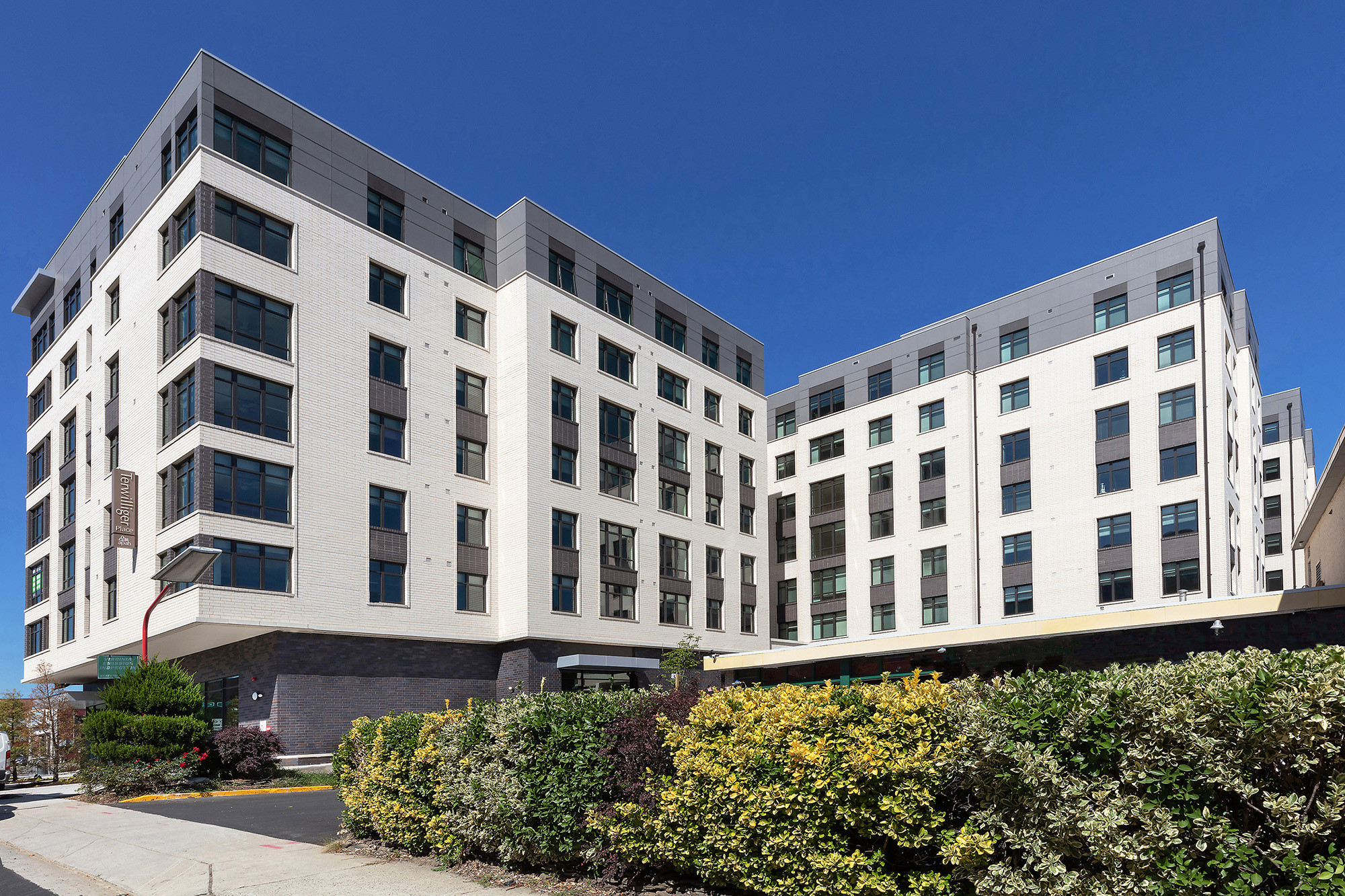
Lucille and Bruce Terwilliger Place was born out of a need to support at-risk veterans and community members in Arlington, Va. The development comprises 160 affordable housing units, indoor and outdoor recreation spaces, as well as a service hub for American Legion Post 139. Half of the units are dedicated to veterans; more than 10% are reserved for households earning 30% of the area’s median income.
The main goal of the aesthetics was to elevate affordable housing, utilizing high quality finishes reflective of a market rate project that would be considered for that same area. To maximize massing, the building overlays the sidewalk which increases unit size. The building is F-shaped to fit like a puzzle piece into the lot for maximum density. Varying brick tones were utilized to break up the scale of the building; hardy panels, metals, and geometric shapes and accents were used as well.
Permanent stormwater control is provided by green roofs and bioretention planters. Strategies such as using materials with recycled content, engineered trim, and advanced framing techniques reduced the use of virgin materials. Significantly improved air sealing techniques, insulation values, and low-e glazing provide a high performing building envelope and improve energy efficiency.
On the Building Team:
General Contractor: CBG Building Company, LLC
Owner/Developer: Arlington Partnership for Affordable Housing (APAH)
Co-Owner: American Legion
Architect: Davis Carter Scott / DCS Design
Landscape Architect: LandDesign
Structural Engineer: SK&A MD
Civil Engineer: Walter L. Phillips Incorporated
MEP Engineer: Allen+Shariff


330 Distel Circle
Los Altos, Calif.
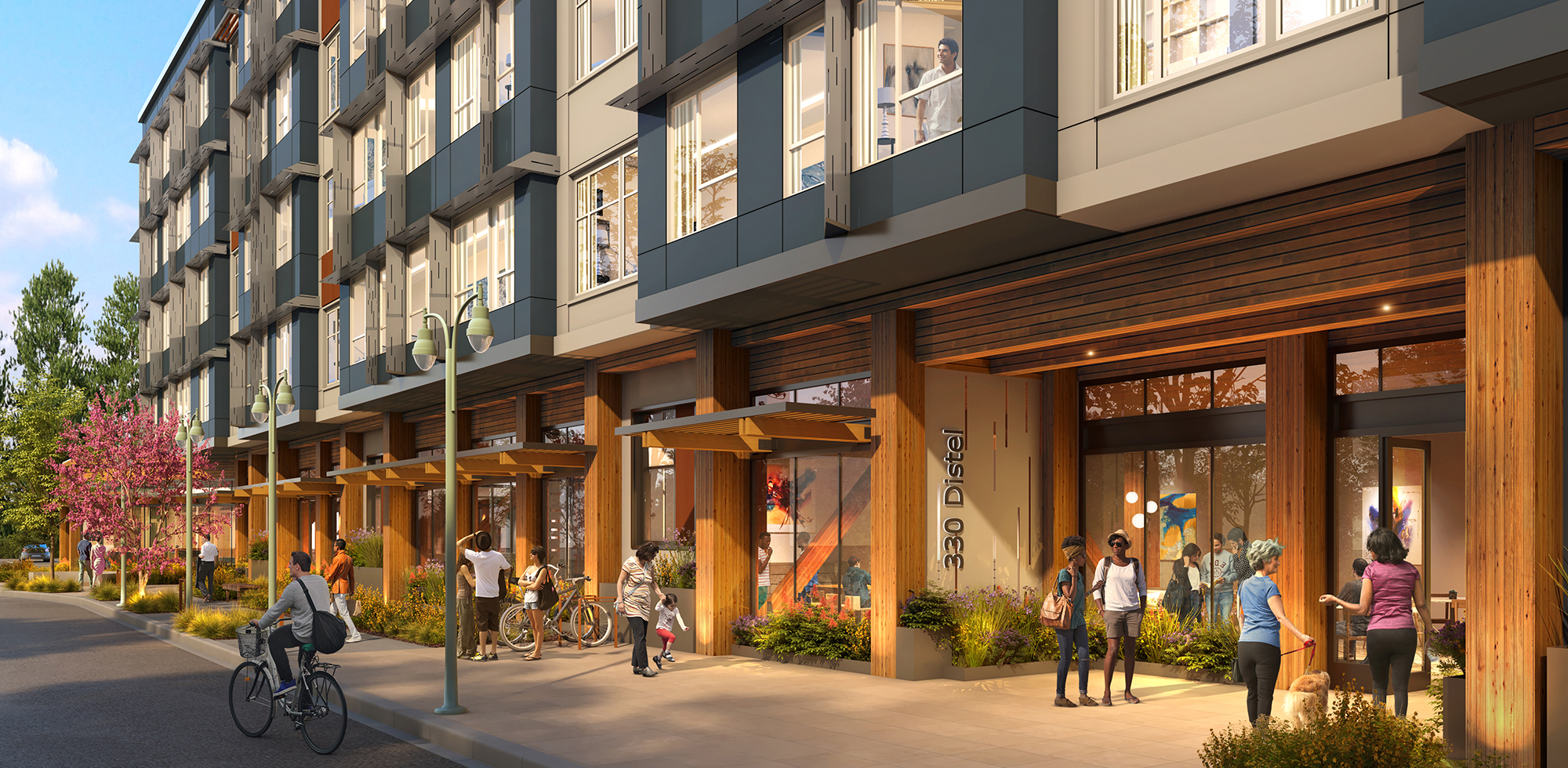
Distel Circle will deliver the first 100% affordable housing project in Los Altos, Calif. Individuals and families earning 30-80% of the area’s median income will qualify. The project—while currently in the design phase and set to break ground in June 2025—will incorporate many design concepts to provide an inclusionary community: Construction innovation via mass timber, vertical parking solutions, modular techniques, and sustainability.
Building sustainable features include solar photovoltaic (PV) panels, water, and energy-saving features, construction material efficiencies, a bike storage and repair station, and electric vehicle charging. Sustainable landscape elements include native plants, stormwater mitigation, an on-site garden, and water-saving features. A challenge for architects has been, and still is, learning how to engage, listen, and synthesize the community’s voice into an opportunity that positively contributes to the project’s final design.
For Distel Circle, the KTGY Oakland studio led a process of engagement that integrated client, community, and stakeholders’ goals. They received input from community members and generated tangible design solutions that balanced the project’s opportunities and constraints.
On the Building Team:
Owner/Developer: EAH Housing
Architect: KTGY
Landscape Architect: Jett Landscape Architecture + Design

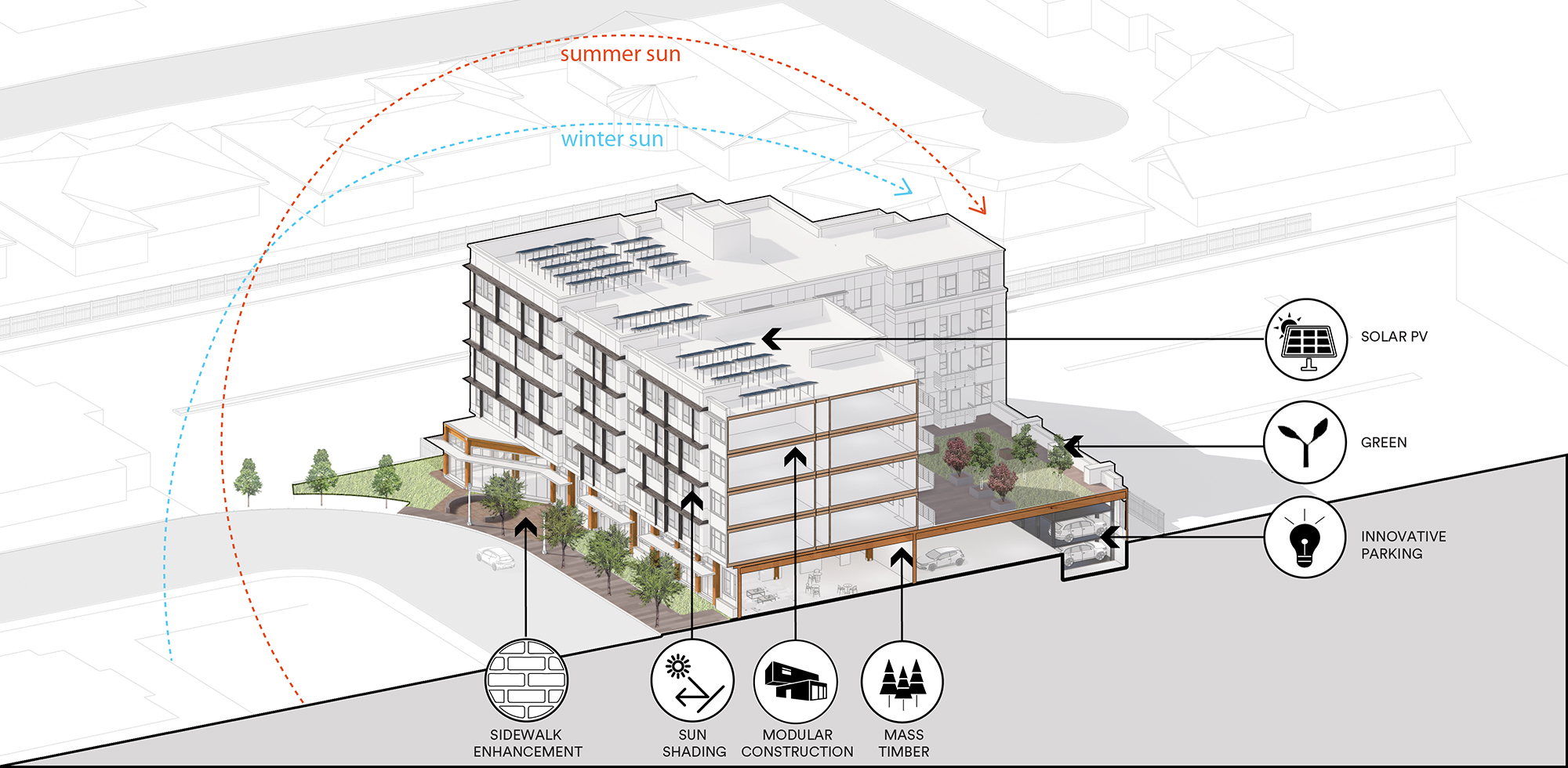
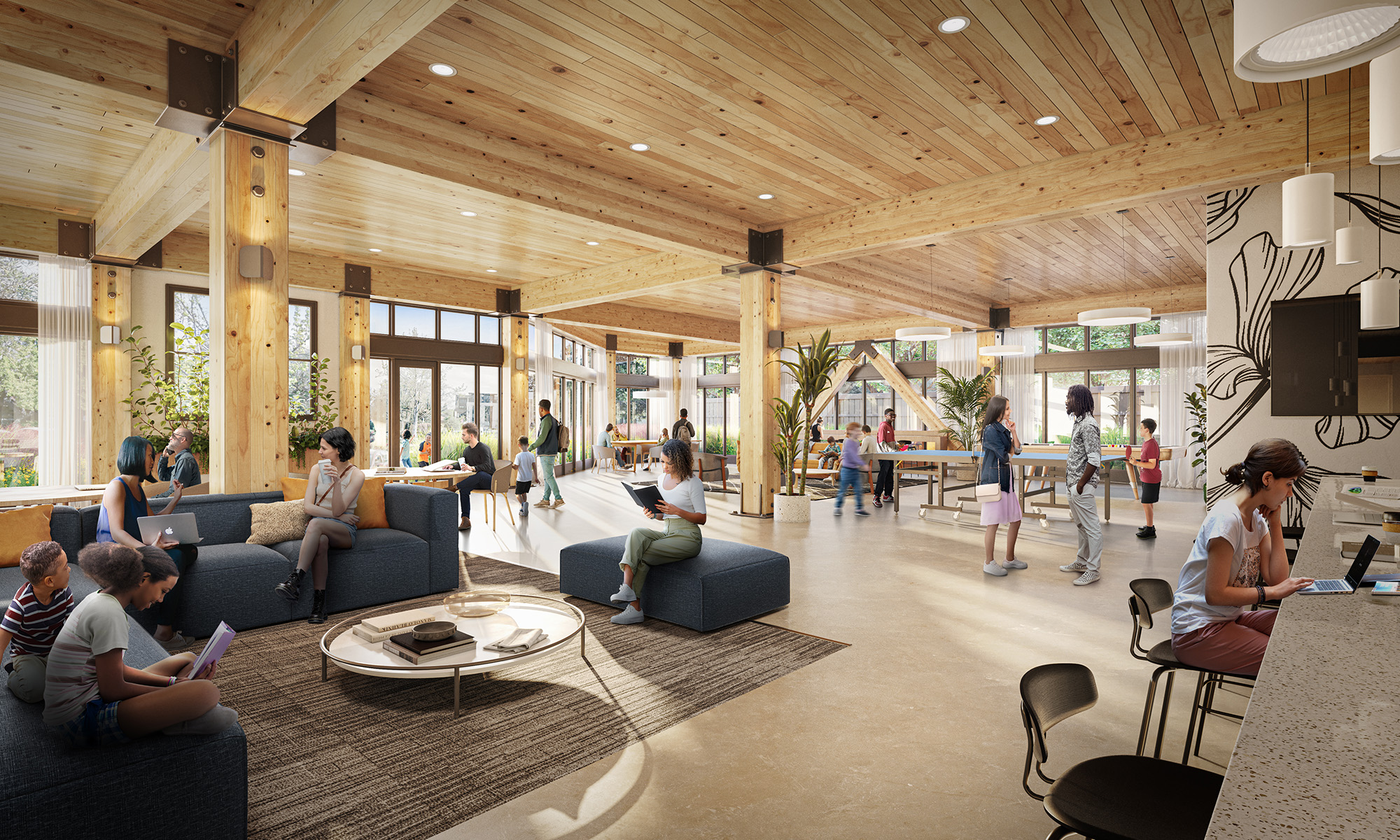
Related Stories
Multifamily Housing | Oct 28, 2024
A case for mid-rise: How multifamily housing can reshape our cities
Often referred to as “five-over-ones,” the mid-rise apartment type is typically comprised of five stories of apartments on top of a concrete “podium” of ground-floor retail. The main criticism of the “five-over-one” is that they are often too predictable.
Adaptive Reuse | Oct 22, 2024
Adaptive reuse project transforms 1840s-era mill building into rental housing
A recently opened multifamily property in Lawrence, Mass., is an adaptive reuse of an 1840s-era mill building. Stone Mill Lofts is one of the first all-electric mixed-income multifamily properties in Massachusetts. The all-electric building meets ambitious modern energy codes and stringent National Park Service historic preservation guidelines.
MFPRO+ News | Oct 22, 2024
Project financing tempers robust demand for multifamily housing
AEC Giants with multifamily practices report that the sector has been struggling over the past year, despite the high demand for housing, especially affordable products.
MFPRO+ Research | Oct 15, 2024
Multifamily rents drop in September 2024
The average multifamily rent fell by $3 in September to $1,750, while year-over-year growth was unchanged at 0.9 percent.
Affordable Housing | Oct 4, 2024
3 new affordable housing projects for October 2024
As affordable housing continues to grow, more projects are looking to diversify their footprint by adding mixed-use components, community areas, and more.
MFPRO+ News | Sep 24, 2024
Major Massachusetts housing law aims to build or save 65,000 multifamily and single-family homes
Massachusetts Gov. Maura Healey recently signed far-reaching legislation to boost housing production and address the high cost of housing in the Bay State. The Affordable Homes Act aims to build or save 65,000 homes through $5.1 billion in spending and 49 policy initiatives.
Adaptive Reuse | Sep 12, 2024
White paper on office-to-residential conversions released by IAPMO
IAPMO has published a new white paper titled “Adaptive Reuse: Converting Offices to Multi-Residential Family,” a comprehensive analysis of addressing housing shortages through the conversion of office spaces into residential units.
Legislation | Sep 9, 2024
Efforts to encourage more housing projects on California coast stall
A movement to encourage more housing projects along the California coast has stalled out in the California legislature. Earlier this year, lawmakers, with the backing of some housing activists, introduced a series of bills aimed at making it easier to build apartments and accessory dwelling units along California’s highly regulated coast.
Resiliency | Sep 3, 2024
Phius introduces retrofit standard for more resilient buildings
Phius recently released, REVIVE 2024, a retrofit standard for more resilient buildings. The standard focuses on resilience against grid outages by ensuring structures remain habitable for at least a week during extreme weather events.
Adaptive Reuse | Aug 29, 2024
More than 1.2 billion sf of office space have strong potential for residential conversion
More than 1.2 billion sf of U.S. office space—14.8% of the nation’s total—have strong potential for conversion to residential use, according to real estate software and services firm Yardi. Yardi’s new Conversion Feasibility Index scores office buildings on their suitability for multifamily conversion.


